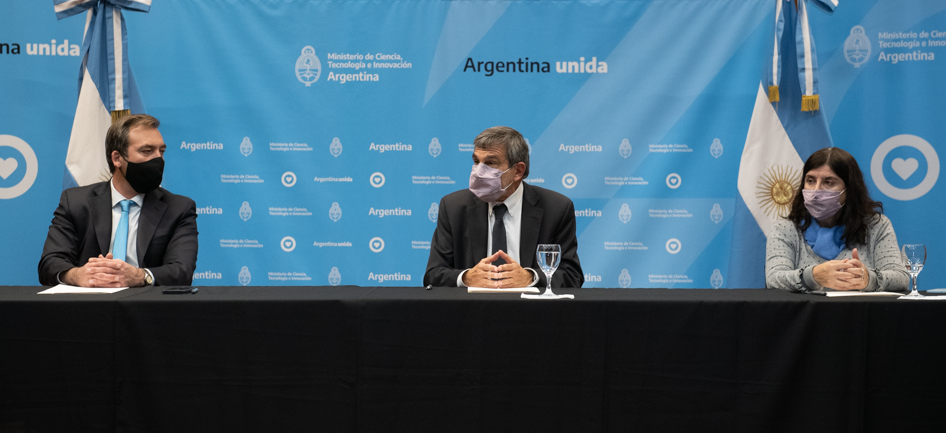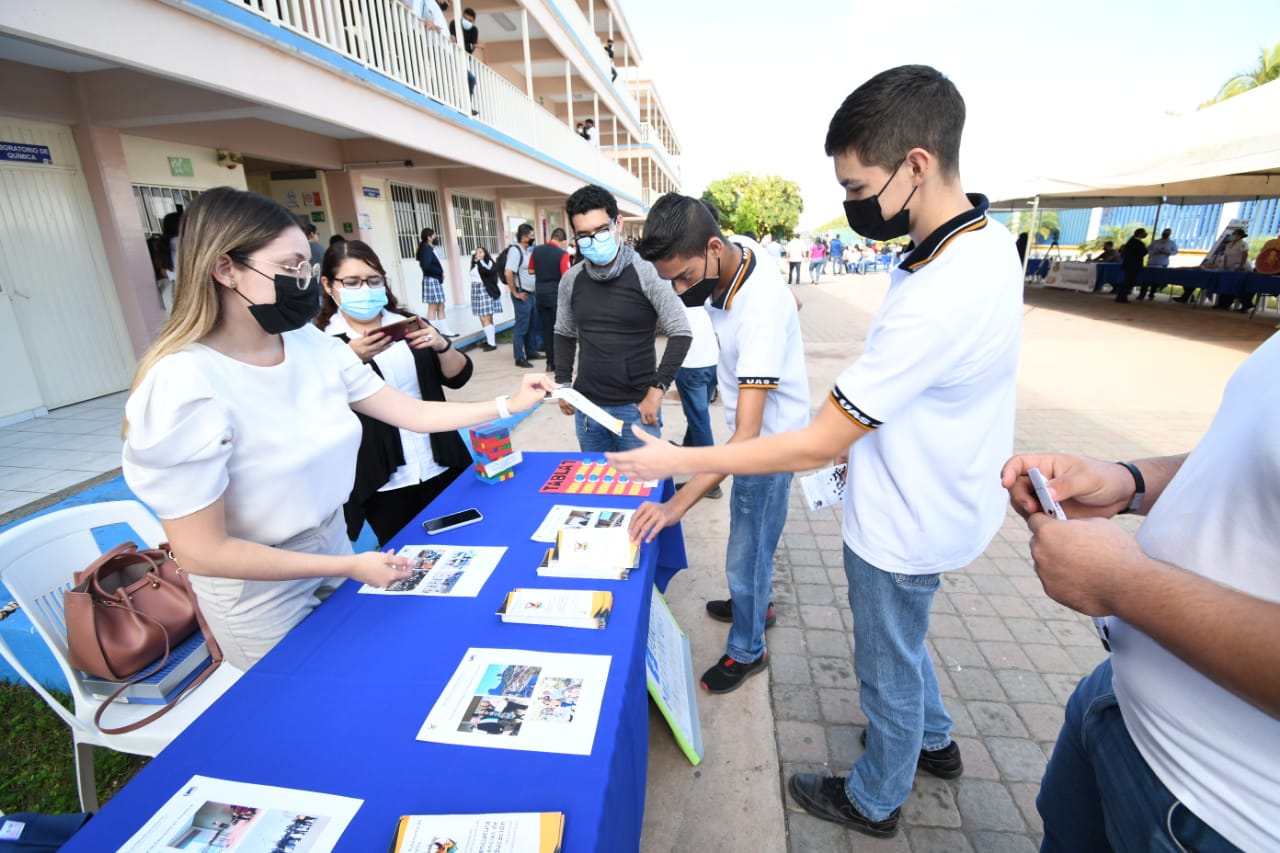The Minister of Science, Technology and Innovation of the Nation, Roberto Salvarezza, the Minister of Justice and Human Rights of the Nation, Martín Soria and the president of the National Council for Scientific and Technical Research (CONICET), Ana Franchi, signed a Specific Agreement for the Support of Research and Development Activities between the parties, with the objective that researchers, as well as CONICET scholarship holders, based at the Institute of Criminology of the Federal Penitentiary Service (SPF), contribute with their research and training to strengthen the management of prison policy.
Salvarezza celebrated the agreement and thanked Minister Soria, the president of CONICET, Franchi, the researchers and the officials for the presence. At the same time, he stressed that the signing of the agreement “will value the different initiatives that we have been working with with the Ministry of Justice and Human Rights, in this particular case, with the Institute of Criminology of the Federal Penitentiary Service.”
The head of the MINCyT pointed out that like the work “that we have been carrying out with many ministers and mayors, this agreement reflects the policy that we carry out from the Ministry, which is to make available to all State agencies the capacities of the scientific system for decision making and for the improvement of public policies. Our management seeks to put science at the service of society ”.
For his part, Minister Soria explained that the Federal Penitentiary Service “has a unique body in Latin America, the Institute of Criminology, to guide its public policies and make them more effective through the production of knowledge. The agreement that we are signing today will allow us to strengthen this Institute, incorporating researchers and scholarship holders from that think tank that is CONICET ”.
With this agreement, the researchers and CONICET fellows will contribute with their research lines to the advice, design and monitoring of management strategies, as well as in the development and implementation of training circuits and complementary training for prison staff and the production and provision of useful information for the management of prison policy. Likewise, the agreement promotes the strengthening of research activities with priority in the local developments of the social sciences, criminology and law, in order to guide their results to the making of executive decisions in penitentiary matters that favor collaboration. with other areas of government linked to post-prison social inclusion, citizen security and criminal policy.
Accordingly, the president of CONICET, Ana Franchi, stated that the agreement “seeks to strengthen the activities of the Institute of Criminology, with the contribution of researchers, fellows and fellows, in the belief that the Institute will welcome the collaboration of CONICET, with its lines of research, with training programs for prison staff and in the design of management strategies ”. The official added that the contribution of science and technology “provide key tools for decision-making, while we contribute to the local development of social sciences, regulatory frameworks and the broad field of criminology.”
Also present during the signing ceremony were the Vice Minister, the Minister of Justice and Human Rights (MJDH), Juan Martín Mena; the Undersecretary of Penitentiary Affairs of the Federal Penitentiary Service (SPF), María Laura Garrigós de Rébori; the presidential advisor, Dora Barrancos; the Manager of Legal Affairs of CONICET, Alan Temiño and the researchers Andrea Lombraña (CONICET-IDAES / UNSAM) and Natalia Ojeda (CONICET-IDAES / UNSAM).
In turn, Lombraña referred to his work experience with Ojeda in Buenos Aires and federal prisons, with whom “as representatives of a much larger team, we have been working in prisons for more than 15 years doing field work and producing empirical data always with the concern to make this information available for prison policy, for its effective transformation and the improvement of practices ”.
Finally, Ojeda remarked “the importance of working in the Institute of Criminology and that, finally, this Institute belongs to the CONICET and the Penitentiary Service. It is a great opportunity to return to the Institute the sense that it historically had of social justice and respect for human rights ”.



:format(webp)/cloudfront-us-east-1.images.arcpublishing.com/grupoclarin/XM6EP3SM5REKNBOIXJSOCDCOOA.jpg)


